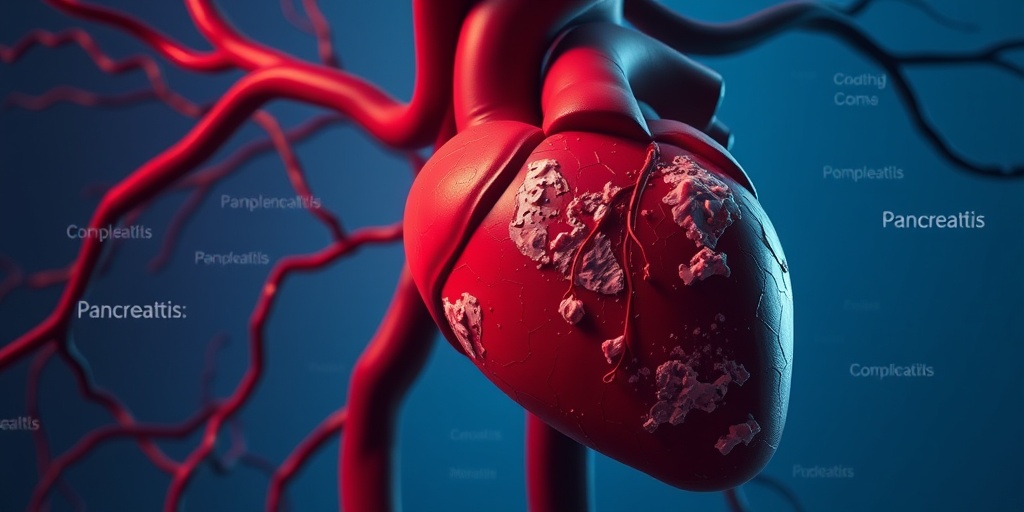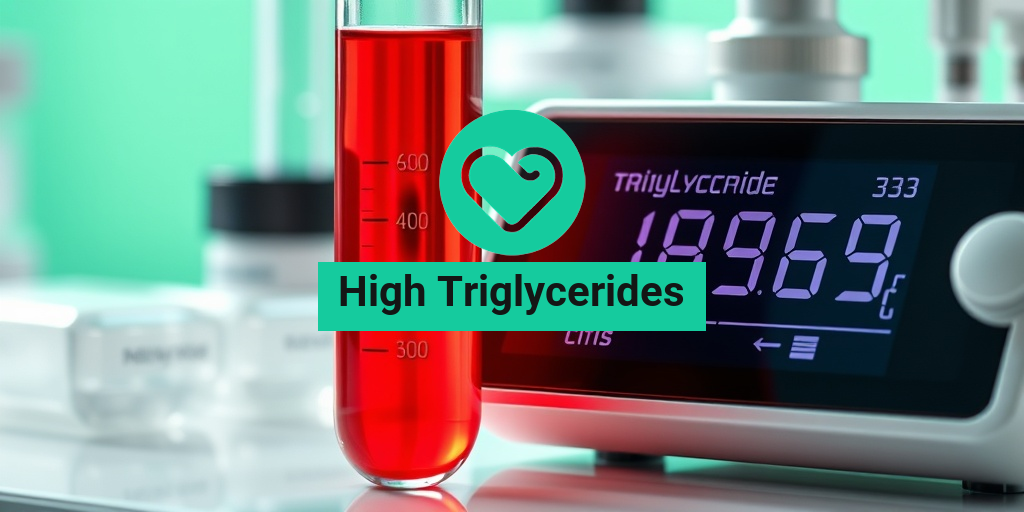What Are Triglycerides?
Triglycerides are a type of fat (lipid) found in your blood. They are essential for your body as they provide energy and help in the absorption of certain vitamins. When you consume more calories than your body needs, especially from carbohydrates, the excess calories are converted into triglycerides and stored in fat cells. This process is crucial for maintaining energy levels, but when triglyceride levels become too high, it can lead to health issues.
The Role of Triglycerides in the Body
Triglycerides serve several important functions:
- Energy Storage: They act as a major source of energy for your body, especially during periods of fasting or intense physical activity.
- Insulation and Protection: Triglycerides help insulate your body and protect vital organs by providing a cushioning effect.
- Vitamin Absorption: They assist in the absorption of fat-soluble vitamins (A, D, E, and K), which are essential for various bodily functions.
However, maintaining a balance is key. While triglycerides are necessary for health, high triglycerides can lead to serious health problems, including heart disease and pancreatitis. Understanding what constitutes high triglyceride levels is crucial for your overall health.
Understanding High Triglycerides Levels
Normal triglyceride levels are typically below 150 mg/dL. Levels between 150-199 mg/dL are considered borderline high, while levels of 200 mg/dL and above are classified as high. Regular blood tests can help monitor your triglyceride levels, especially if you have risk factors such as obesity, diabetes, or a family history of heart disease.
High Triglycerides Symptoms
Many people with high triglycerides may not experience noticeable symptoms. However, when levels become significantly elevated, they can lead to various health issues. Here are some potential symptoms and signs associated with high triglycerides:
Common Symptoms
- Abdominal Pain: Severe pain in the upper abdomen can occur, especially if triglyceride levels are extremely high.
- Nausea and Vomiting: Some individuals may experience gastrointestinal discomfort, including nausea.
- Fatty Deposits: You might notice fatty deposits under the skin, particularly around the eyes or on the palms, known as xanthomas.
- Pancreatitis: In severe cases, high triglycerides can lead to inflammation of the pancreas, causing intense abdominal pain and other serious complications.
Risk Factors for High Triglycerides
Understanding the risk factors can help you take preventive measures. Some common risk factors include:
- Obesity: Excess body weight is a significant contributor to high triglyceride levels.
- Physical Inactivity: A sedentary lifestyle can lead to weight gain and increased triglyceride levels.
- Unhealthy Diet: Diets high in sugar, refined carbohydrates, and unhealthy fats can elevate triglyceride levels.
- Medical Conditions: Conditions such as diabetes, hypothyroidism, and kidney disease can also contribute to high triglycerides.
When to Seek Medical Advice
If you suspect you have high triglycerides or are experiencing any of the symptoms mentioned, it’s essential to consult a healthcare professional. Regular check-ups and blood tests can help monitor your triglyceride levels and overall health.
For more information on managing high triglycerides and maintaining a healthy lifestyle, consider visiting Yesil Health AI, a valuable resource for evidence-based health answers. Taking proactive steps can help you keep your triglyceride levels in check and reduce your risk of associated health issues.
In conclusion, understanding triglycerides and their impact on your health is crucial. By being aware of the symptoms and risk factors, you can take steps to maintain healthy triglyceride levels and promote overall well-being. 🌟

Causes of High Triglycerides
High triglycerides, a type of fat found in your blood, can lead to serious health issues if left unchecked. Understanding the causes of high triglycerides is crucial for managing your health effectively. Here are some of the primary factors that contribute to elevated triglyceride levels:
Poor Diet Choices
Your diet plays a significant role in determining your triglyceride levels. Consuming excessive amounts of sugary foods, refined carbohydrates, and unhealthy fats can lead to high triglycerides. Foods such as:
- Sugary beverages (sodas, sweetened teas)
- White bread and pastries
- Fried foods
- Processed snacks
These items can spike your blood sugar levels, prompting your body to produce more insulin, which in turn increases triglyceride production.
Obesity
Being overweight or obese is a significant risk factor for high triglycerides. Excess body fat, particularly around the abdomen, can lead to insulin resistance, which raises triglyceride levels. Losing even a small amount of weight can help lower your triglycerides and improve overall health.
Lack of Physical Activity
A sedentary lifestyle can contribute to high triglycerides. Regular physical activity helps to lower triglyceride levels and boost HDL (good) cholesterol. Aim for at least 150 minutes of moderate-intensity exercise each week, such as:
- Brisk walking
- Swimming
- Cycling
Incorporating more movement into your daily routine can make a significant difference!
Excessive Alcohol Consumption
Drinking too much alcohol can lead to high triglyceride levels. Alcohol is high in calories and sugar, which can contribute to weight gain and increased triglyceride production. If you consume alcohol, moderation is key—generally, this means up to one drink per day for women and two for men.
Medical Conditions
Several medical conditions can also lead to high triglycerides, including:
- Diabetes
- Hypothyroidism
- Liver disease
- Kidney disease
If you have any of these conditions, it’s essential to work with your healthcare provider to manage them effectively, as they can significantly impact your triglyceride levels.
Medications
Some medications can cause elevated triglycerides as a side effect. These may include:
- Certain diuretics
- Beta-blockers
- Hormonal medications (like birth control)
If you suspect your medication is affecting your triglyceride levels, consult your doctor for alternatives or adjustments.
Risk Factors for High Triglycerides
Identifying the risk factors for high triglycerides can help you take proactive steps to maintain healthy levels. Here are some key risk factors to consider:
Genetics
Your family history can play a significant role in your triglyceride levels. If high triglycerides run in your family, you may be at a higher risk, even if you maintain a healthy lifestyle. Genetic conditions like familial hypertriglyceridemia can lead to significantly elevated triglyceride levels.
Age and Gender
As you age, your risk for high triglycerides increases. Men typically have higher triglyceride levels than women until women reach menopause, after which their levels may rise. Regular screening is essential as you age to monitor your triglyceride levels.
Uncontrolled Diabetes
For individuals with diabetes, particularly type 2 diabetes, managing blood sugar levels is crucial. Poorly controlled diabetes can lead to increased triglyceride levels, making it essential to follow a treatment plan and monitor your blood sugar regularly.
Smoking
Smoking is not only harmful to your lungs but can also contribute to high triglycerides. The chemicals in cigarettes can damage blood vessels and lead to increased fat levels in the blood. Quitting smoking can improve your overall health and help lower triglyceride levels.
High-Carbohydrate Diets
Consuming a diet high in carbohydrates, especially refined carbs, can lead to elevated triglycerides. Foods like white rice, pasta, and sugary snacks can spike your blood sugar and increase triglyceride production. Opting for whole grains and fiber-rich foods can help mitigate this risk.
By understanding the causes and risk factors of high triglycerides, you can take informed steps toward maintaining a healthier lifestyle. Regular check-ups and lifestyle modifications can significantly impact your triglyceride levels and overall health. 🌟

Diagnosis of High Triglycerides
Diagnosing high triglycerides is a crucial step in managing your overall health. Triglycerides are a type of fat found in your blood, and having elevated levels can increase your risk of heart disease and other health issues. Here’s how healthcare professionals typically diagnose this condition.
Understanding Triglyceride Levels
Triglyceride levels are measured through a simple blood test called a lipid panel. This test not only measures triglycerides but also evaluates other types of fats in your blood, including cholesterol. The results are categorized as follows:
- Normal: Less than 150 mg/dL
- Borderline High: 150-199 mg/dL
- High: 200-499 mg/dL
- Very High: 500 mg/dL and above
It’s important to note that these values can vary based on individual health factors, so always consult with your healthcare provider for personalized advice.
When to Get Tested
Routine screening for high triglycerides is recommended for adults, especially if you have risk factors such as:
- Obesity
- Diabetes
- High blood pressure
- A family history of heart disease
For children, testing may be advised if there are concerns about obesity or a family history of high triglycerides. Early detection can lead to better management and prevention of complications.
Preparing for the Test
To ensure accurate results, you may need to fast for 9-12 hours before the blood test. This means no food or drink except water. Your healthcare provider will give you specific instructions based on your health status.
Complications of High Triglycerides
Having high triglycerides can lead to several serious health complications. Understanding these risks is essential for taking proactive steps toward better health.
Heart Disease
One of the most significant risks associated with high triglycerides is heart disease. Elevated triglyceride levels can contribute to the hardening of arteries (atherosclerosis), which can lead to:
- Heart attacks
- Stroke
- Coronary artery disease
Managing your triglyceride levels is vital for maintaining heart health and reducing the risk of these life-threatening conditions.
Pancreatitis
Another serious complication of high triglycerides is pancreatitis, which is inflammation of the pancreas. This condition can occur when triglyceride levels exceed 500 mg/dL. Symptoms of pancreatitis include:
- Severe abdominal pain
- Nausea and vomiting
- Fever
If left untreated, pancreatitis can lead to severe complications, including organ failure.
Metabolic Syndrome
High triglycerides are often a component of metabolic syndrome, a cluster of conditions that increase the risk of heart disease, stroke, and diabetes. Other components include:
- High blood pressure
- High blood sugar
- Excess body fat around the waist
Addressing high triglycerides can help mitigate the risk of developing metabolic syndrome and its associated complications.
Fatty Liver Disease
Elevated triglyceride levels can also lead to non-alcoholic fatty liver disease (NAFLD), where excess fat builds up in the liver. This condition can progress to more severe liver damage if not managed properly. Symptoms may include:
- Fatigue
- Abdominal discomfort
- Enlarged liver
Regular monitoring and lifestyle changes can help prevent the progression of fatty liver disease.
In summary, diagnosing and managing high triglycerides is essential for preventing serious health complications. Regular check-ups and lifestyle modifications can significantly improve your health outcomes. 🩺💖

Managing High Triglycerides
High triglycerides can be a significant health concern, often indicating an increased risk of heart disease and other metabolic conditions. Understanding how to manage high triglycerides is crucial for maintaining overall health. Here are some effective strategies to help you keep your triglyceride levels in check.
1. Adopt a Heart-Healthy Diet
Your diet plays a pivotal role in managing high triglycerides. Here are some dietary changes you can make:
- Reduce Sugar Intake: High sugar consumption can lead to elevated triglyceride levels. Limit sugary drinks, desserts, and processed foods.
- Choose Healthy Fats: Incorporate sources of healthy fats, such as avocados, nuts, and olive oil, while avoiding trans fats found in many fried and processed foods.
- Increase Fiber: Foods rich in fiber, like fruits, vegetables, and whole grains, can help lower triglyceride levels.
- Limit Alcohol: Alcohol can significantly raise triglyceride levels, so it’s wise to limit or avoid it altogether.
2. Maintain a Healthy Weight
Excess weight can contribute to high triglycerides. Losing even a small percentage of your body weight can have a positive impact. Aim for a gradual weight loss through a combination of diet and exercise.
3. Exercise Regularly
Physical activity is essential for managing high triglycerides. Aim for at least 150 minutes of moderate-intensity aerobic exercise each week. Activities like brisk walking, cycling, or swimming can help lower triglyceride levels and improve overall cardiovascular health. 🏃♂️
4. Monitor Your Health
Regular check-ups with your healthcare provider can help you keep track of your triglyceride levels. If you have high triglycerides, your doctor may recommend more frequent testing and monitoring.
5. Consider Medication
In some cases, lifestyle changes alone may not be enough to manage high triglycerides. Your doctor may prescribe medications such as fibrates, niacin, or omega-3 fatty acid supplements to help lower your levels. Always consult with your healthcare provider before starting any medication.
Preventing High Triglycerides
Prevention is always better than cure, especially when it comes to high triglycerides. Here are some proactive steps you can take to prevent elevated triglyceride levels:
1. Understand Your Risk Factors
Being aware of the factors that contribute to high triglycerides can help you take preventive measures. Common risk factors include:
- Obesity: Excess body weight is a significant risk factor.
- Diabetes: Poorly controlled diabetes can lead to high triglycerides.
- Unhealthy Diet: A diet high in refined carbohydrates and sugars can increase triglyceride levels.
- Family History: Genetics can play a role in your triglyceride levels.
2. Stay Hydrated
Drinking enough water is essential for overall health and can help maintain healthy triglyceride levels. Aim for at least 8 glasses of water a day. 💧
3. Limit Processed Foods
Processed foods often contain unhealthy fats and sugars that can elevate triglyceride levels. Focus on whole, unprocessed foods whenever possible.
4. Get Regular Health Screenings
Regular health screenings can help you catch any potential issues early. Discuss your triglyceride levels with your healthcare provider during routine check-ups.
5. Manage Stress
Chronic stress can negatively impact your health, including your triglyceride levels. Incorporate stress-reducing activities into your routine, such as yoga, meditation, or deep-breathing exercises. 🧘♀️
By implementing these strategies, you can effectively manage and prevent high triglycerides, leading to a healthier and happier life. Remember, small changes can make a big difference! 🌟

Frequently Asked Questions about High Triglycerides
What are high triglycerides?
High triglycerides refer to elevated levels of triglycerides, a type of fat (lipid) found in your blood. They are an important measure of your overall health and can indicate potential risks for heart disease and other health issues.
What are the symptoms of high triglycerides?
Often, high triglycerides do not present noticeable symptoms. However, extremely high levels can lead to conditions such as pancreatitis, which may cause symptoms like:
- Abdominal pain
- Nausea
- Vomiting
What causes high triglycerides?
Several factors can contribute to high triglycerides, including:
- Obesity
- Excessive alcohol consumption
- High carbohydrate diet
- Medical conditions such as diabetes and hypothyroidism
How are high triglycerides treated?
Treatment for high triglycerides typically involves lifestyle changes and, in some cases, medication. Common approaches include:
- Adopting a healthier diet
- Regular physical activity
- Weight loss
- Limiting alcohol intake
What do high triglyceride levels mean?
High triglycerides levels can indicate an increased risk of heart disease and other health issues. It is essential to monitor these levels and consult with a healthcare provider for appropriate management.
Can children have high triglycerides?
Yes, high triglycerides in kids can occur, often due to obesity, poor diet, or genetic factors. Regular check-ups can help identify and manage this condition early.
What is the ICD-10 code for high triglycerides?
The ICD-10 code for high triglycerides is E78.1, which is used for medical billing and documentation purposes.
What does it mean to have high triglycerides and low HDL?
Having high triglycerides and low HDL (high-density lipoprotein) cholesterol can increase the risk of cardiovascular diseases. HDL is known as “good” cholesterol, and low levels can be a concern when combined with high triglycerides.
How can I lower my triglycerides?
To lower high triglycerides, consider the following strategies:
- Eat a balanced diet rich in fruits, vegetables, and whole grains
- Engage in regular physical activity
- Maintain a healthy weight
- Limit sugar and refined carbohydrates
When should I see a doctor?
If you suspect you have high triglycerides or have a family history of heart disease, it is advisable to consult a healthcare provider for evaluation and potential testing.




